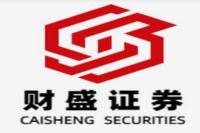Top Chinese Brokerages Face Regulatory Scrutiny: A Deep Dive into Recent Sanctions
Meta Description: This in-depth analysis examines the recent regulatory actions against leading Chinese brokerages, including Citic Securities, Huaxin Securities, and China Merchants Securities, exploring the implications for the industry and investor confidence. Keywords: Citic Securities, Huaxin Securities, China Merchants Securities, regulatory sanctions, Chinese brokerage firms, investor confidence, internal controls, compliance.
Wow! Hold onto your hats, folks, because the Chinese brokerage world just got a whole lot more interesting. Three major players – Citic Securities (the undisputed heavyweight champ!), Huaxin Securities, and China Merchants Securities – have all recently received regulatory warnings (aka, serious slaps on the wrist!). This isn't just some minor hiccup; these are significant sanctions that highlight serious cracks in their compliance and operational structures. We're diving deep into the details, analyzing the specific infractions, exploring the broader implications for the industry, and providing you with actionable insights to navigate this turbulent landscape. Get ready for a rollercoaster ride through the world of Chinese finance! We’ll unpack the regulatory findings, analyze their impact on investor trust, and discuss the future implications for these firms and the wider brokerage sector. This isn't just another dry financial report; it's a gripping narrative of regulatory oversight, corporate accountability, and the ongoing evolution of China's dynamic financial markets. Buckle up, because this is going to be a wild ride! We'll be exploring the specifics of each brokerage's violations, discussing the potential consequences, and offering valuable insights that will help you make informed investment decisions. So grab your coffee, settle in, and let's unravel this fascinating story together. Prepare to be informed, engaged, and maybe even a little shocked by what we uncover!
Citic Securities, Huaxin Securities, and China Merchants Securities: A Regulatory Earthquake
The Shenzhen Securities Regulatory Bureau (SSRB) recently dropped a bombshell, issuing warning letters to Citic Securities, Huaxin Securities, and China Merchants Securities for a variety of compliance failures. This isn't just a minor inconvenience; it's a major blow to the reputation of these prominent firms and sends a clear message to the entire brokerage industry. The SSRB's actions underscore the increasing importance of robust internal controls and regulatory compliance within China's rapidly evolving financial landscape. It's a wake-up call for everyone involved, a clear indication that the regulators are serious about maintaining the integrity of the market.
For Citic Securities, often dubbed the "big brother" of Chinese brokerages, the sanctions are especially noteworthy. The sheer scale of their violations is alarming. It indicates systemic issues that go beyond simple oversight. It's a sobering reminder that even the biggest players can stumble if they neglect their compliance duties.
Citic Securities' Violations: A Case Study in Compliance Failures
Citic Securities' problems spanned multiple areas. They faced criticism for inadequate brokerage business management, including:
- Lackluster System Updates: Their operational systems and procedures weren't updated and revised frequently enough, leaving loopholes ripe for exploitation. This is a major red flag, suggesting a lack of proactive risk management.
- Insufficient Client Due Diligence: Customer information collection wasn't standardized across the board, and follow-up procedures were apparently lackadaisical. This raises serious concerns in terms of KYC (Know Your Customer) compliance and AML (Anti-Money Laundering) regulations.
- Weak Internal Controls: The firm's ability to detect and respond to suspicious trading activities appears to have been significantly compromised. Their internal controls were simply not up to par.
- Ineffective Communication: The company's communications, including marketing messages through its WeChat account, were deemed inappropriate, showcasing a gap in their marketing compliance protocols.
In their over-the-counter (OTC) derivatives business, Citic Securities also fell short. The SSRB highlighted weaknesses in:
- Counterparty Due Diligence: Insufficient scrutiny of counterparties, failing to properly identify their true nature and underlying relationships.
- Ongoing Monitoring: They failed to adequately monitor and review their counterparties over time, missing opportunities to mitigate risks.
- Risk Monitoring and Reporting: Their risk monitoring systems were apparently not robust enough, and reporting requirements weren't met consistently. This highlights a lack of proactive risk assessment and mitigation.
Huaxin Securities and China Merchants Securities: Similar Shortcomings
Huaxin Securities' issues focused mainly on its brokerage business operations. The inadequacies mirrored those of Citic Securities, including:
- Outdated Systems: These failures point to a lack of investment in modernizing their infrastructure and processes.
- Substandard Personnel Management: Weaknesses in performance evaluations and compensation structures failed to adequately promote compliance and ethical conduct.
- Inadequate Investor Assessments: The company’s investor suitability tests showed irregularities, with a lack of follow-up action to address potential risks.
China Merchants Securities also faced criticism for similar failings in their brokerage and OTC derivatives businesses. Key issues included insufficient system updates, inadequate due diligence, and poor risk management practices. These findings underline a broader theme: a systemic lack of attention to detail and a disregard for best practices in risk management across multiple firms.
The Implications: Investor Confidence and Future Outlook
These regulatory actions send ripples throughout the entire Chinese brokerage sector. The penalties themselves are significant, but the damage to reputation and investor confidence is likely far greater. Investors, already wary in the current climate, will reassess their risk tolerances and potentially withdraw their funds. The immediate impact could be reduced trading volumes and diminished market liquidity.
The long-term implications could be equally significant. The SSRB's actions demonstrate a clear commitment to stricter regulatory enforcement. This is likely to lead to increased scrutiny of brokerage firms, causing increased compliance costs and potentially hindering business growth. Brokers will need to invest heavily in bolstering their internal controls, enhancing their compliance practices, and improving their risk management strategies. It’s a costly and time-consuming process, but one that's necessary for survival in this new regulatory landscape.
The focus on enhancing internal controls is paramount. Firms are likely to experience an increase in regulatory compliance costs. These costs include investments in new technologies, personnel training, and enhanced monitoring systems. The increased compliance standards will likely impact profitability in the short term but are essential for long-term sustainability.
Navigating the Regulatory Landscape: A Call for Enhanced Compliance
The recent sanctions act as a wake-up call for all Chinese brokerages. It is imperative that they prioritize compliance and enhance their risk management frameworks. Simply put, neglecting these responsibilities is no longer an option—it’s a recipe for disaster. Firms must invest in robust internal controls, implement rigorous training programs for their staff, and embrace advanced technologies to enhance their monitoring capabilities. Ignoring this advice would be nothing short of reckless. A proactive and comprehensive approach to compliance is not merely a regulatory requirement; it's a prerequisite for long-term success and investor trust.
Frequently Asked Questions (FAQs)
Q1: What are the specific penalties for these brokerages?
A1: The SSRB issued warning letters, which are a serious regulatory sanction, but haven't imposed financial penalties in this instance. However, repeated violations could lead to more severe consequences.
Q2: How will this affect investor confidence in Chinese brokerages?
A2: Investor confidence is likely to be shaken. The regulatory actions raise concerns about the industry's overall compliance and risk management practices. Investors may become more cautious and selective in their choice of brokerages.
Q3: What steps can brokerages take to avoid similar sanctions?
A3: Brokerages need to prioritize robust internal controls, regular system updates, thorough due diligence on clients and counterparties, ongoing monitoring, and timely reporting to regulators. Investing in technology and staff training is also crucial.
Q4: Are there other brokerages under similar scrutiny?
A4: While these three are in the spotlight now, the regulatory focus on compliance is likely to extend to other firms in the sector. This is a signal to the entire industry to improve their compliance standards.
Q5: What is the overall impact on the Chinese stock market?
A5: The short-term impact could involve decreased trading volumes and increased market volatility. The long-term impact depends on how effectively brokerages respond to the regulatory pressure.
Q6: What are the broader implications for the financial industry in China?
A6: This highlights a broader trend of increased regulatory oversight in China's financial markets, signaling a stricter enforcement of rules and regulations aimed at improving market integrity and investor protection.
Conclusion
The regulatory actions against Citic Securities, Huaxin Securities, and China Merchants Securities mark a turning point in the Chinese brokerage landscape. The sanctions are a stark reminder that compliance is not optional; it’s a non-negotiable element of operating successfully in this sector. The emphasis on strengthening internal controls and enhancing risk management practices will be a game-changer for the industry. The long-term consequences of this regulatory crackdown will shape the future of the Chinese brokerage sector, pushing for greater transparency, accountability, and investor protection. The industry must adapt or face further consequences. It's a new era, and those who fail to adapt will be left behind.



